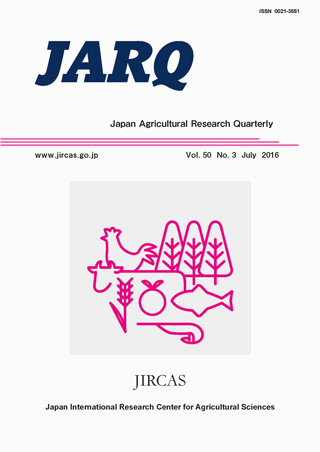Flooding due to worldwide climate change can drastically affect crop production. To overcome the detrimental effects of flooding during maize growth, we have been developing flooding-tolerant maize via DNA marker-assisted selection using a flooding-tolerant teosinte, Zea nicaraguensis, as a donor parent. Over the last decade, quantitative trait locus (QTL) information on flooding-tolerancerelated traits in Zea species has been obtained at the NARO Institute of Livestock and Grassland Science, and near-isogenic lines containing one or more QTLs have been developed for several flooding-tolerance-related traits, such as the capacity to form constitutive aerenchyma, tolerance to flooding under reducing soil conditions, and ability to form adventitious roots at the soil surface. In field trials, we have been accumulating data demonstrating the effectiveness of teosinte-derived QTLs on flooding tolerance, and are preparing to release a flooding-tolerant F1 maize hybrid within a few years. In addition, we have just started a project to clone Qft-rd4.07-4.11 by using next-generation sequencing, which would make it possible to extend the use of this QTL to other upland crops.

